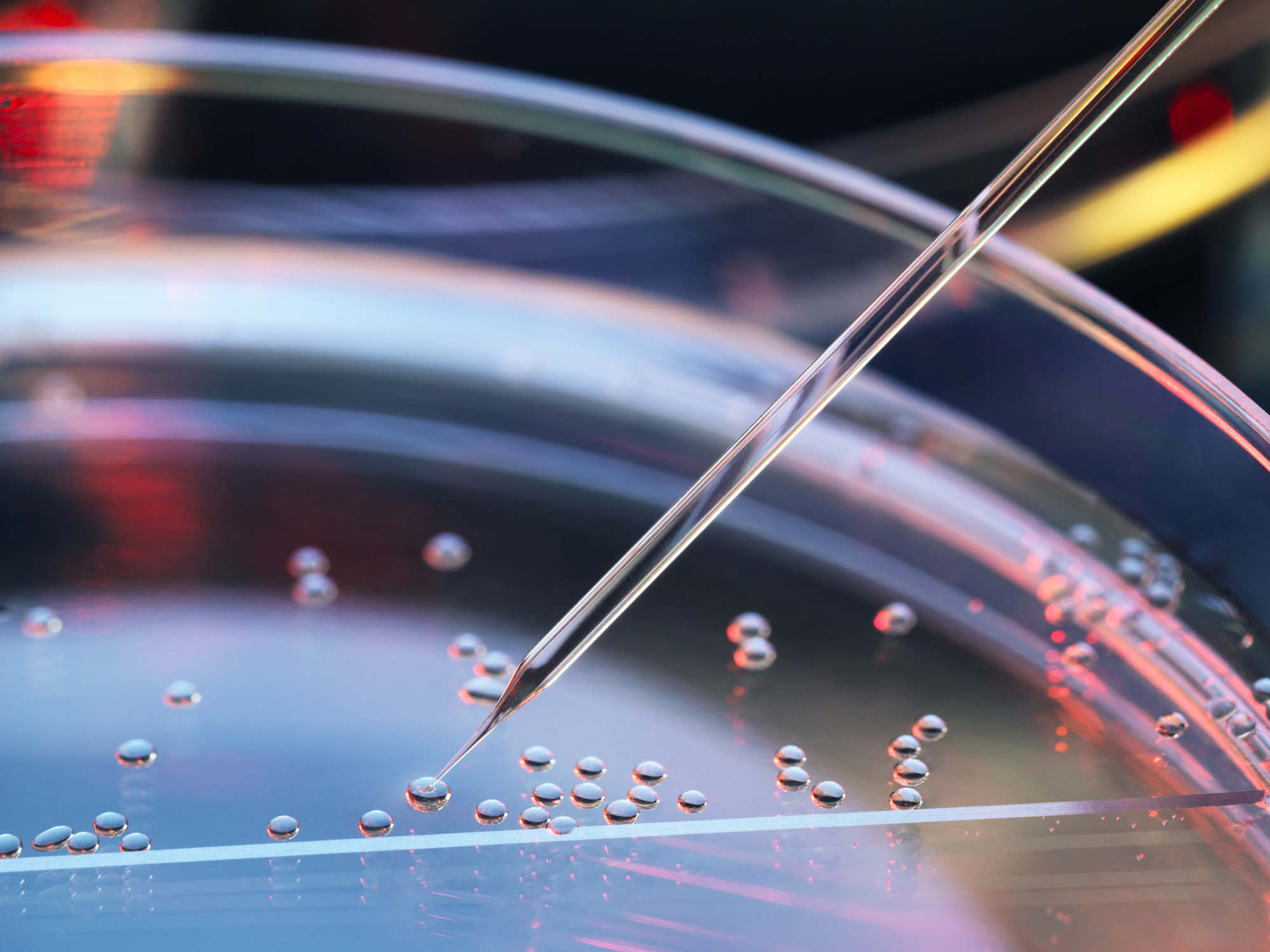Researchers say they created first synthetic human embryo model


A free daily email with the biggest news stories of the day – and the best features from TheWeek.com
You are now subscribed
Your newsletter sign-up was successful
A team of scientists in the United States and the United Kingdom said they created the world's first synthetic human embryonic structure from stem cells, an advancement that "sidesteps the need for eggs or sperm," per The Guardian, the first outlet to cover the story.
The researchers said the model embryos resemble the earliest stages of human development, meaning they lack organs such as a heart or brain. Still, the hope is that the structures can help scientists better understand genetic diseases and miscarriages, and that the research sheds light on the "black box" of human development, or the period that follows two weeks of fertilization.
Dr. Magdalena Zernicka-Goetz, a professor of biology and biological engineering at CalTech and the University of Cambridge, described her team's findings in a presentation for the International Society for Stem Cell Research's annual meeting in Boston. She said a scientific journal had accepted the research but it has yet to be published. Her team and a rival group in Israel had previously reported creating similar "embryoids" from mouse stem cells.
The Week
Escape your echo chamber. Get the facts behind the news, plus analysis from multiple perspectives.

Sign up for The Week's Free Newsletters
From our morning news briefing to a weekly Good News Newsletter, get the best of The Week delivered directly to your inbox.
From our morning news briefing to a weekly Good News Newsletter, get the best of The Week delivered directly to your inbox.
Zernicka-Goetz's lab grew each model embryo from a single human embryonic stem cell that developed into three different tissue layers, she told CNN. The models included cells that could develop into a yolk sac, placenta or embryo. She also said her lab's structures were the first to have germ cells that could become eggs and sperm. Still, Zernicka-Goetz wanted to "stress that they are not human embryos."
For some, the research underscores how quickly the science in the field has bypassed the law, as many countries, including the U.S. and the U.K., lack any regulations for creating or working with synthetic embryos. The advancement also highlights the "urgent need" for laws that provide "a framework for the creation and use of stem cell derived models of human embryos," James Briscoe, associate research director at the Francis Crick Institute, said in a statement.
A free daily email with the biggest news stories of the day – and the best features from TheWeek.com
Theara Coleman has worked as a staff writer at The Week since September 2022. She frequently writes about technology, education, literature and general news. She was previously a contributing writer and assistant editor at Honeysuckle Magazine, where she covered racial politics and cannabis industry news.
-
 Political cartoons for February 13
Political cartoons for February 13Cartoons Friday's political cartoons include rank hypocrisy, name-dropping Trump, and EPA repeals
-
 Palantir's growing influence in the British state
Palantir's growing influence in the British stateThe Explainer Despite winning a £240m MoD contract, the tech company’s links to Peter Mandelson and the UK’s over-reliance on US tech have caused widespread concern
-
 Quiz of The Week: 7 – 13 February
Quiz of The Week: 7 – 13 FebruaryQuiz Have you been paying attention to The Week’s news?
-
 5 recent breakthroughs in biology
5 recent breakthroughs in biologyIn depth From ancient bacteria, to modern cures, to future research
-
 Blue Origin launches Mars probes in NASA debut
Blue Origin launches Mars probes in NASA debutSpeed Read The New Glenn rocket is carrying small twin spacecraft toward Mars as part of NASA’s Escapade mission
-
 Dinosaurs were thriving before asteroid, study finds
Dinosaurs were thriving before asteroid, study findsSpeed Read The dinosaurs would not have gone extinct if not for the asteroid
-
 SpaceX breaks Starship losing streak in 10th test
SpaceX breaks Starship losing streak in 10th testspeed read The Starship rocket's test flight was largely successful, deploying eight dummy satellites during its hour in space
-
 Rabbits with 'horns' sighted across Colorado
Rabbits with 'horns' sighted across Coloradospeed read These creatures are infected with the 'mostly harmless' Shope papilloma virus
-
 Lithium shows promise in Alzheimer's study
Lithium shows promise in Alzheimer's studySpeed Read Potential new treatments could use small amounts of the common metal
-
 Scientists discover cause of massive sea star die-off
Scientists discover cause of massive sea star die-offSpeed Read A bacteria related to cholera has been found responsible for the deaths of more than 5 billion sea stars
-
 'Thriving' ecosystem found 30,000 feet undersea
'Thriving' ecosystem found 30,000 feet underseaSpeed Read Researchers discovered communities of creatures living in frigid, pitch-black waters under high pressure
